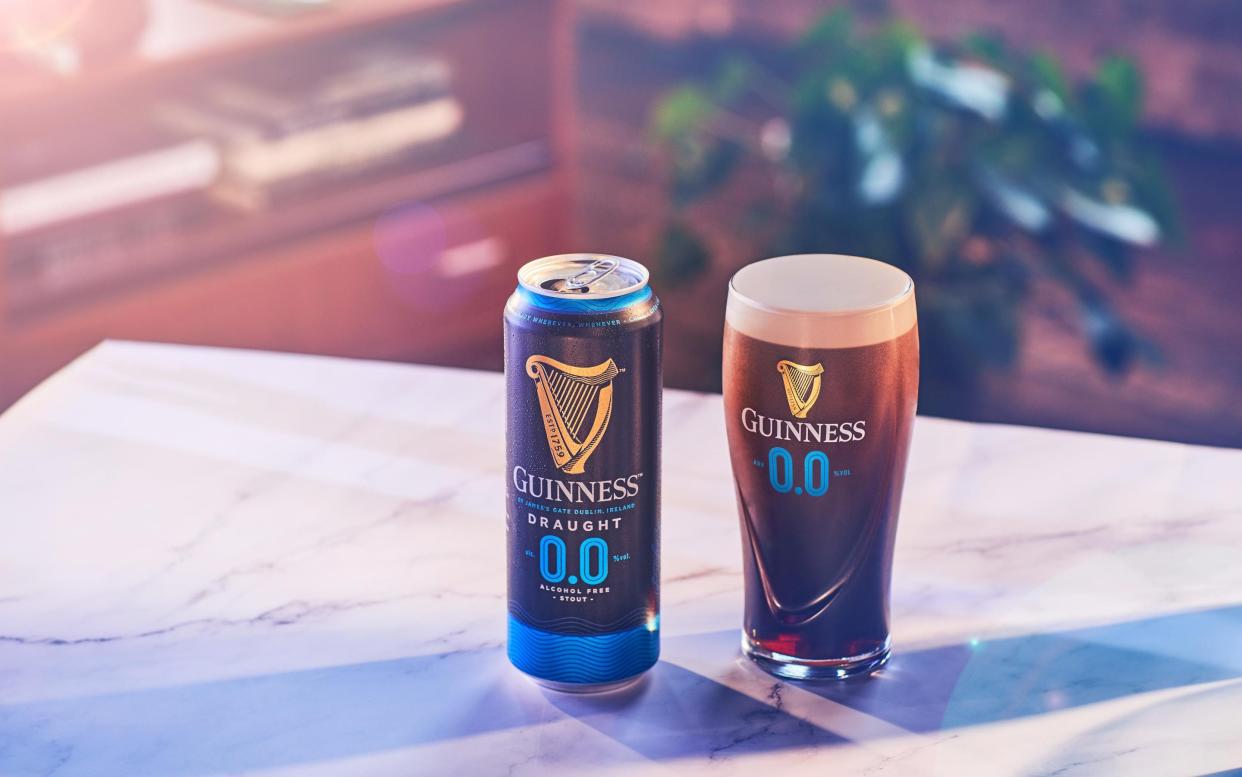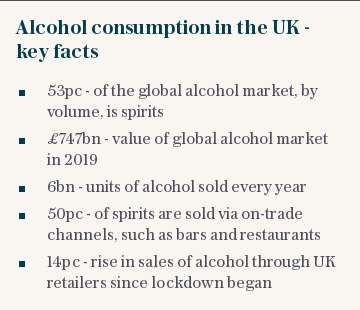Good things come to those who wait? Guinness goes non-alcoholic

- Oops!Something went wrong.Please try again later.
Through much of the 20th century, Guinness claimed that its creamy stout had medicinal qualities. "Guinness is good for you," declared one of its first advertisements in 1929.
Almost a century later, the brewer has finally produced a truly health-focused beer after launching a non-alcoholic version of the black stuff in an attempt to woo sober millennials.
"Guinness 0.0" will be made with the same ingredients as the alcoholic version but will contain just 16 calories per 100ml or 70 calories per can - compared to the traditional variety which weighs in at 177 calories.
The firm is seeking to cash in on a growing trend for low and no-alcohol drinking, particularly driven by the young. The alcohol-free beer market is worth an estimated $4.5bn (£3.4bn) a year and will hit $7bn by 2024, according to data company CGA.
Bosses at the brewer in St James's Gate, Dublin insist their new drink will lose nothing of the traditional Guinness flavour. It uses the same amounts of water, barley, hops and yeast as a traditional pint, before removing the alcohol via a cold filtration method.
Guinness, owned by drinks giant Diageo, said this process allows the alcohol to be filtered out without imposing "thermal stress" on the beer, protecting its taste and character.
They claim the product has "the same beautifully smooth taste, perfectly balanced flavour and unique dark colour of Guinness, without the alcohol".
Guinness drinkers tend to be a tough bunch to please, and whether the alcohol-free version comes anywhere close to the real thing remains to be seen, but the move is part of a wider trend in the drinks industry to create non-alcoholic versions of their products as younger generations either cut down or turn their back on alcohol entirely.

While alcohol-free beers have been around for decades, demand has surged after Heineken and Budweiser created some of the first reasonable tasting non-alcoholic lagers.
Gráinne Wafer, global brand director at Guinness, said the new product was the company's "biggest innovation in decades" and claims that it tastes "absolutely incredible".
She said: "The trend towards alcohol-free beer has been growing for the last number of years. What we see increasingly is changes in the way consumers are socialising.
"They’re looking for more choices during occasions when they are choosing not to drink alcohol. We wanted to make sure we were meeting that desire."
Guinness is also remaining faithful to another of its famous ads: "Good things come to those who wait." It has taken the brewer four years to develop its latest product.
Ms Wafer said creating a non-alcoholic beer was quite a complicated process, but it mainly took so long because of "the brewers’ obsession with quality and really wanting it to be absolutely perfect".
Aisling Ryan, innovation brewer at St James’s Gate in Dublin, said: "Our entire brewing team is hugely proud of the care and effort that has been put into the four year development process for Guinness 0.0."

The Guinness Company was established in 1759, when Arthur Guinness signed a 9,000-year lease on St. James’s Gate. The world's best-selling stout is brewed in 49 countries worldwide and sold in over 120.
Guinness 0.0 will be available in 440ml cans in the UK and Ireland from Monday in off-licences and supermarkets, but will not be launched in pubs until next spring.
In 2015, Diageo launched craft lager Hop House 13 made at its St James's Gate brewery in an attempt to take advantage of changing consumer tastes.

